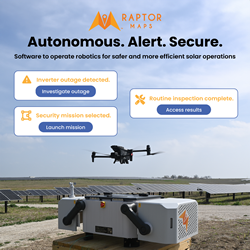States Lead Clean Energy Development through Innovative Programs According to New Report
Comprehensive study shows the importance of innovative state policies and programs, coupled with federal support
MONTPELIER, VT - June 22, 2015 - The Clean Energy States Alliance (CESA), a national, nonprofit coalition of state agencies and other public organizations working together to advance clean energy, is proud to announce the release of its latest report, Clean Energy Champions: The Importance of State Programs and Policies. The report provides the first-ever comprehensive look at the ways in which states are supporting clean energy as well as offers suggestions on how to further encourage growth.
View the Full Report: http://www.cesa.org/resource-library/resource/clean-energy-champions-the-importance-of-state-programs-and-policies.
Clean Energy Champions describes the many important ways that states across the nation are supporting clean energy generation and markets. It highlights 31 case studies from 22 states, covering a variety of state programs such as renewable portfolio standards, rebates for purchasing solar panels, and wind energy tax credits, as well as lesser-known policy tools to build necessary infrastructure, grow small businesses, and protect consumers. These initiatives have come from states in all parts of the country, from states large and small, urban and rural, and from those with solid Republican majorities as well as those with solid Democratic majorities.
"Over the past decade and a half, states across the country have implemented innovative policies that have achieved significant, measurable results," said Warren Leon, Executive Director of CESA. "This report clearly outlines how renewable energy production has far surpassed expectations and created a thriving clean energy sector. We must sustain this momentum by supporting various initiatives at the state level, working in tandem with federal agencies, and advancing clean energy with continued bipartisan support."
In examining the states role in clean energy development over the past 15 years, the report identifies seven lessons to consider for the continued growth of clean energy into the future. Those lessons cover the following:
- The significance of state experimentation and the ways states can continue to innovate to move the clean energy sector forward
- The need for the states to strengthen their existing consumer protection role regarding clean energy technologies
- The approach states should take when modifying distributed generation policies
- The value of continuing to address clean energy policy in a non-partisan manner
- The specific research analysis the federal government should undertake to assist the states
- The role of federal tax incentives in leveraging state initiatives for clean energy market growth
- The importance of structuring EPAs Clean Power Plan in ways that support existing state clean energy initiatives.
Key areas where state activity has made significant progress to overcome market barriers identified in the report are:
Developing the Clean Energy Supply: In 2014, wind and solar energy production far surpassed the projections the U.S. Energy Information Administration (EIA) had made in 2000 for the 2015 electricity supply. State policies and programs such as the rapid adoption of state renewable portfolio standards, which require electricity suppliers to get an increasing share of their electricity from clean energy, is one of the most significant contributors to this unexpected growth.
Overcoming Barriers by Building the Infrastructure for Clean Energy Growth: From supporting the development of physical infrastructure such as electricity transmission lines to streamlining long-established administrative processes, strengthening necessary financial infrastructure, and developing organizations for better collaboration, states have made necessary improvements to overcome daunting barriers to clean energy growth.
Building a Vibrant Clean Energy Industry: In addition to common forms of assistance offered to most businesses, states across the country pursue a variety of strategies specifically to help clean energy businesses grow. For instance, states encourage universities and research labs to collaborate with the private sector and test emerging technologies. Clean energy start-ups also receive support through state-supported incubators that offer assistance to overcome challenges facing a new business.
Protecting and Including Consumers: In the absence of official national standards, state agencies have collectively established informal, de facto national standards for clean energy equipment and system installers to protect the interests of consumers. Consumer protection measures ensure that buyers are getting the information they need to make sound purchasing decisions and that vendors, contractors, and installers are qualified to perform the work.
Featured Product

